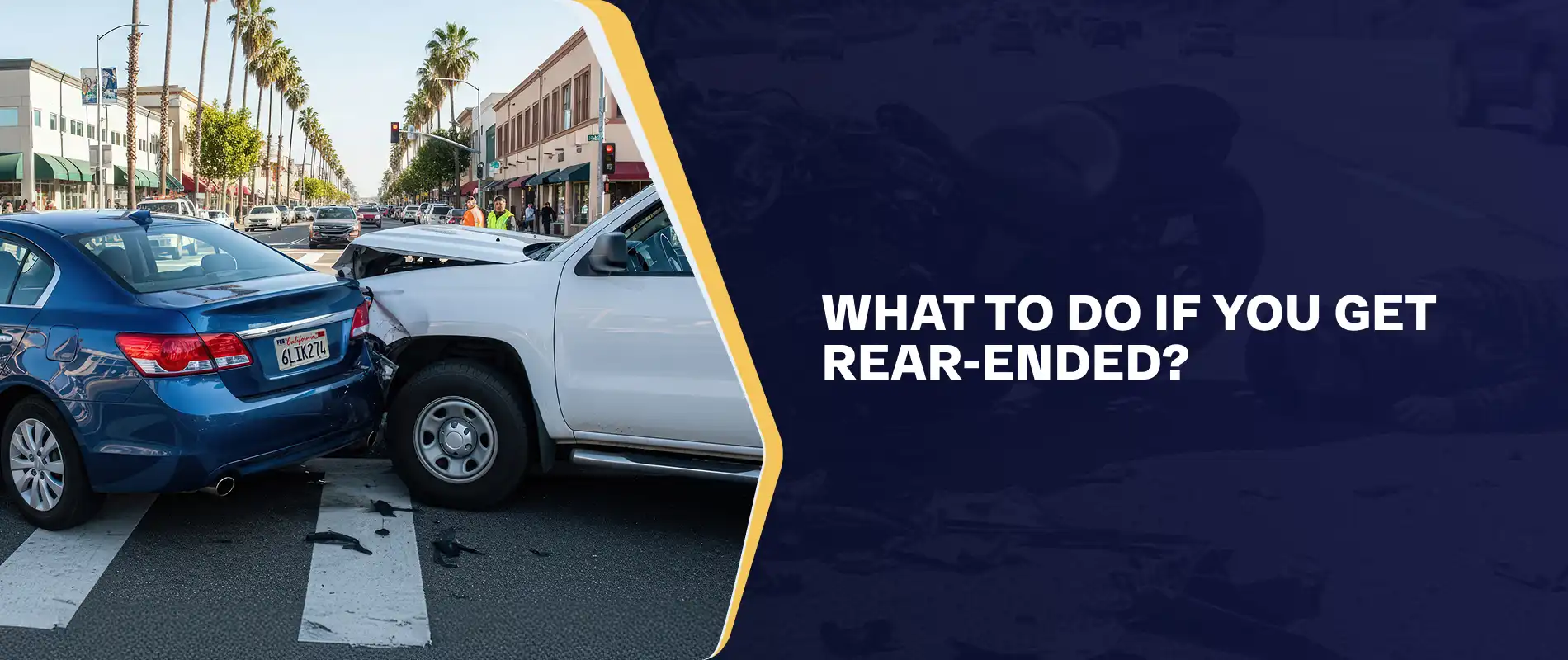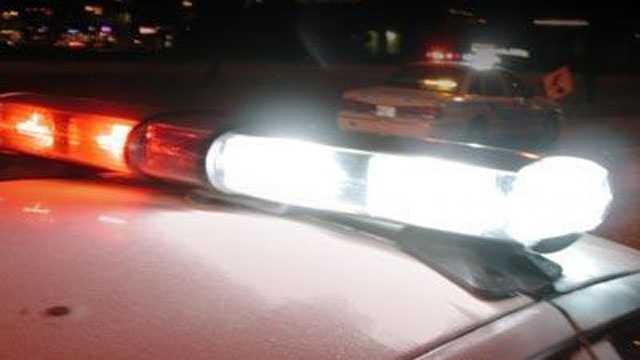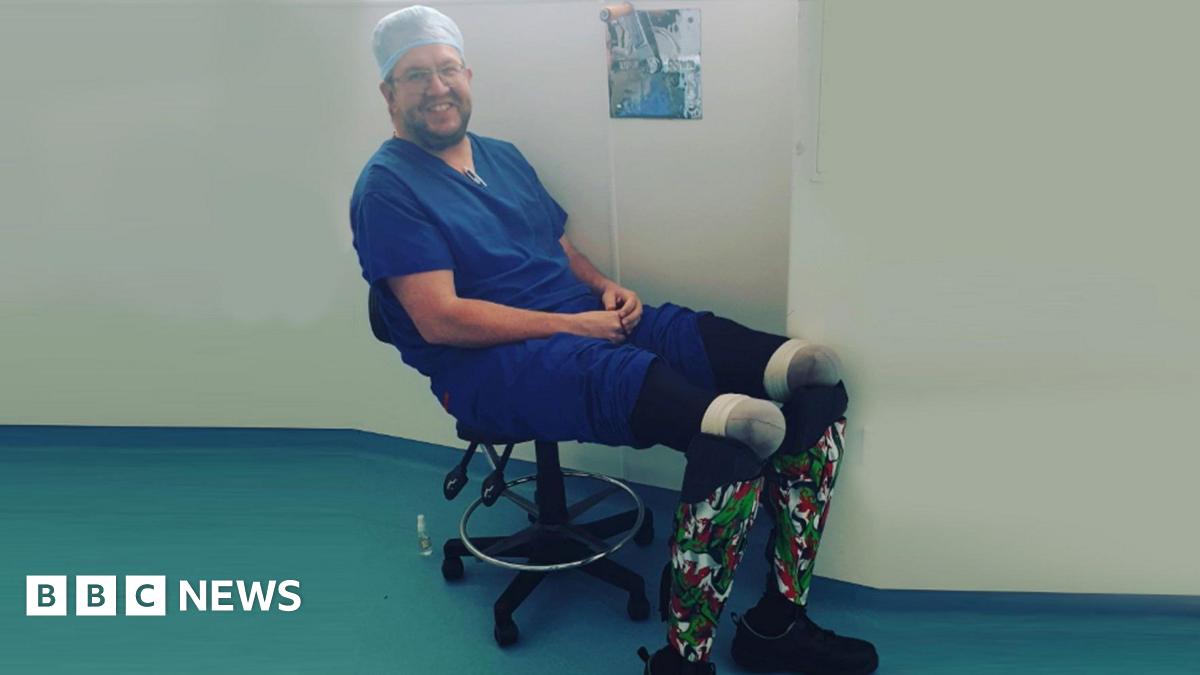Dealing With A Rear-End Collision: Insurance And Legal Advice

Welcome to your ultimate source for breaking news, trending updates, and in-depth stories from around the world. Whether it's politics, technology, entertainment, sports, or lifestyle, we bring you real-time updates that keep you informed and ahead of the curve.
Our team works tirelessly to ensure you never miss a moment. From the latest developments in global events to the most talked-about topics on social media, our news platform is designed to deliver accurate and timely information, all in one place.
Stay in the know and join thousands of readers who trust us for reliable, up-to-date content. Explore our expertly curated articles and dive deeper into the stories that matter to you. Visit Best Website now and be part of the conversation. Don't miss out on the headlines that shape our world!
Table of Contents
Dealing with a Rear-End Collision: Insurance and Legal Advice
Being rear-ended is a frustrating and potentially dangerous experience. The initial shock can be overwhelming, leaving you unsure of what steps to take next. This guide provides crucial information on navigating the aftermath of a rear-end collision, covering insurance claims and legal advice to help you get back on your feet.
Understanding Liability in Rear-End Collisions
In most jurisdictions, the driver who rear-ends another vehicle is deemed at fault. This is because the following driver has a responsibility to maintain a safe following distance and avoid collisions. However, exceptions exist. For instance, if the driver in front brake-checked unexpectedly or committed another dangerous maneuver that directly caused the accident, liability might be shared or shifted. This is why obtaining thorough documentation is crucial.
Immediate Steps After a Rear-End Collision:
- Ensure Safety: Check for injuries to yourself and others involved. Call emergency services if anyone is hurt.
- Document the Scene: Take photographs of the damage to all vehicles, the surrounding area, and any visible injuries. Note the license plate numbers, driver's licenses, insurance information, and contact details of all parties involved.
- Report the Accident: Report the accident to the police, especially if there are injuries or significant property damage. Obtain a police report number. This report serves as critical evidence.
- Seek Medical Attention: Even if you feel fine initially, seek medical attention. Whiplash and other injuries may not manifest immediately. Medical documentation is essential for your insurance claim.
- Contact Your Insurance Company: Report the accident to your insurance company as soon as possible. Provide them with all the details you've gathered.
Navigating Your Insurance Claim:
Your insurance claim process will depend on whether you are at fault or not.
- If you are not at fault: Your insurance company should handle the claim against the other driver's insurance. You'll need to provide all necessary documentation, including the police report and medical records.
- If you are at fault: Your insurance company will cover the damages to the other vehicle and any injuries sustained by the other driver(s), up to your policy limits. This could affect your premiums.
When to Seek Legal Advice After a Rear-End Collision:
Consider consulting a personal injury lawyer if:
- You sustained significant injuries: This includes whiplash, back injuries, concussions, or other serious conditions requiring extensive medical treatment.
- The insurance company is being uncooperative: If the claims process is slow, difficult, or the insurer is denying your claim without proper justification, legal counsel can help.
- The damages exceed your insurance coverage: If your medical bills or property damage surpass your policy limits, a lawyer can help pursue further compensation from the at-fault driver.
- There are disputes over liability: If the other driver claims you were at fault, a lawyer can help establish your innocence and protect your rights.
Finding the Right Legal Representation:
Finding a qualified personal injury attorney is key. Look for attorneys specializing in car accidents and with a proven track record of success. Many offer free initial consultations. Online legal directories can be helpful starting points, but be sure to verify credentials and reviews.
Conclusion:
Dealing with the aftermath of a rear-end collision can be complex. By following these steps and seeking professional assistance when necessary, you can protect your rights and ensure you receive fair compensation for your losses. Remember to prioritize your safety and well-being, and don't hesitate to seek legal advice when needed. Your health and financial security are paramount.

Thank you for visiting our website, your trusted source for the latest updates and in-depth coverage on Dealing With A Rear-End Collision: Insurance And Legal Advice. We're committed to keeping you informed with timely and accurate information to meet your curiosity and needs.
If you have any questions, suggestions, or feedback, we'd love to hear from you. Your insights are valuable to us and help us improve to serve you better. Feel free to reach out through our contact page.
Don't forget to bookmark our website and check back regularly for the latest headlines and trending topics. See you next time, and thank you for being part of our growing community!
Featured Posts
-
 Stream This Popular Superhero Show Free On Prime Video But Hurry
Sep 07, 2025
Stream This Popular Superhero Show Free On Prime Video But Hurry
Sep 07, 2025 -
 Texas Enacts Sweeping Camp Safety Law After Devastating Floods
Sep 07, 2025
Texas Enacts Sweeping Camp Safety Law After Devastating Floods
Sep 07, 2025 -
 Star Birth Unveiled Breathtaking Images From The James Webb Space Telescope
Sep 07, 2025
Star Birth Unveiled Breathtaking Images From The James Webb Space Telescope
Sep 07, 2025 -
 Public Health Crisis Diabetes Test Errors Leave 55 000 At Risk
Sep 07, 2025
Public Health Crisis Diabetes Test Errors Leave 55 000 At Risk
Sep 07, 2025 -
 Multi Vehicle Accident On Highway 99 Near Manteca
Sep 07, 2025
Multi Vehicle Accident On Highway 99 Near Manteca
Sep 07, 2025
Latest Posts
-
 Schwarzenegger Eyes Newsom A Potential California Governors Race
Sep 08, 2025
Schwarzenegger Eyes Newsom A Potential California Governors Race
Sep 08, 2025 -
 Report Trump May Ban Iranians From Costco Wholesale Stores
Sep 08, 2025
Report Trump May Ban Iranians From Costco Wholesale Stores
Sep 08, 2025 -
 Toronto Film Festival Exclusive Interviews With Cillian Murphy Paul Mescal And More
Sep 08, 2025
Toronto Film Festival Exclusive Interviews With Cillian Murphy Paul Mescal And More
Sep 08, 2025 -
 Trumps Fiery Rebuttal Epstein Files Release A Democrat Hoax Claims President
Sep 08, 2025
Trumps Fiery Rebuttal Epstein Files Release A Democrat Hoax Claims President
Sep 08, 2025 -
 Betrayed By A Surgeon The Truth Behind Neil Hoppers Sepsis Lie
Sep 08, 2025
Betrayed By A Surgeon The Truth Behind Neil Hoppers Sepsis Lie
Sep 08, 2025
